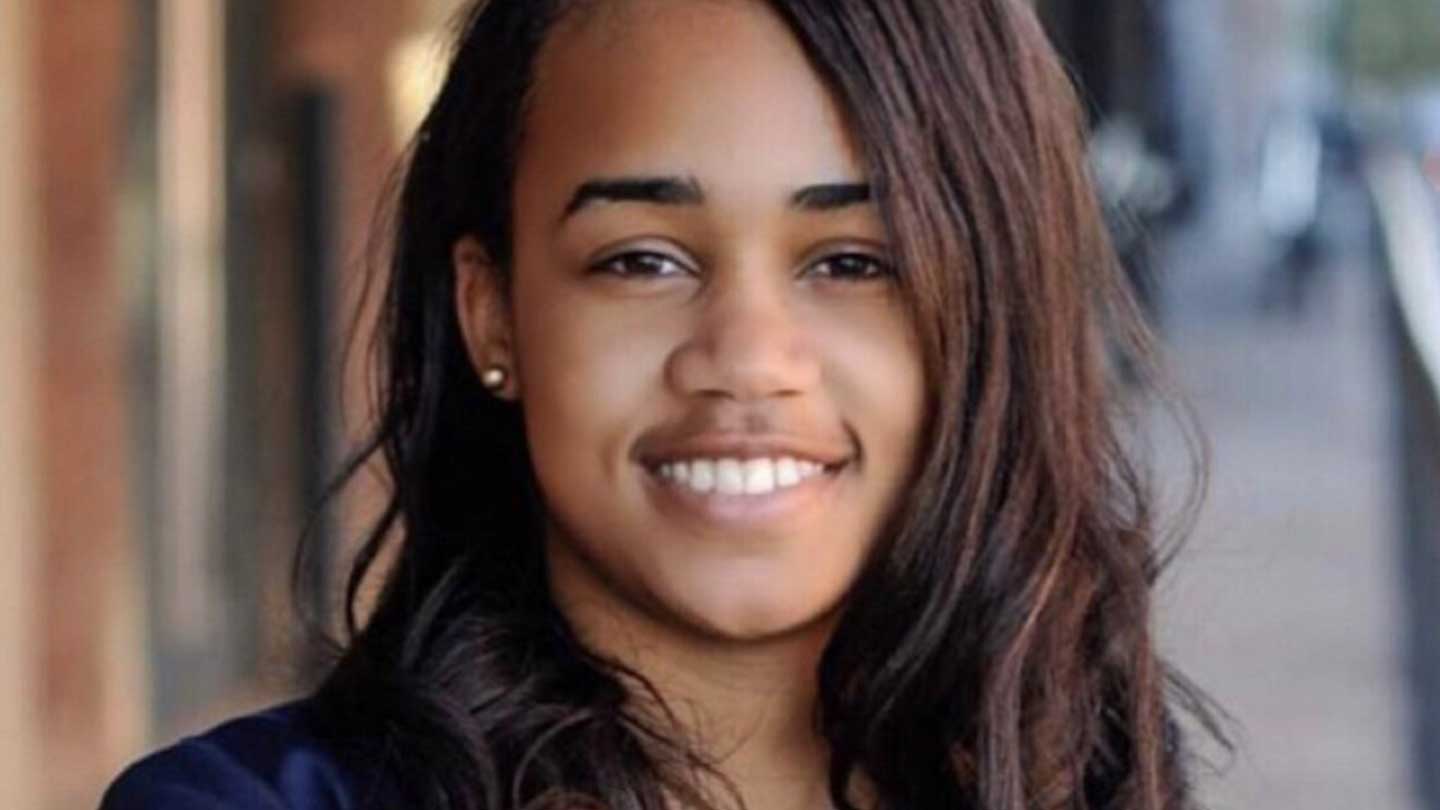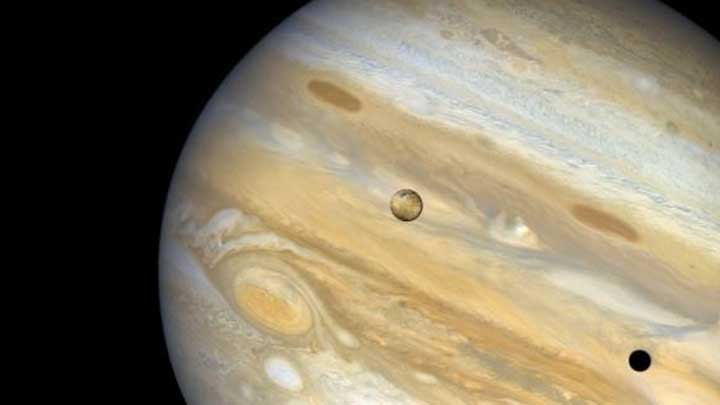
Honors Student Alencia Hall
Courtesy Alencia Hall
Honors Student Alencia Hall, a sophomore majoring in aerospace engineering at The University of Alabama in Huntsville, part of The University of Alabama System, has been awarded a summer internship with Johns Hopkins University's Applied Physics Laboratory (APL).

Courtesy NASA
Each summer the APL College Summer Intern Program invites more than 400 college students from across the United States to intern at the university. The program selects students from around the country to contribute to engineering and research projects to both protect the U.S. and expand frontiers in science. Hall has been chosen to work with the Space Systems Engineering Group under the Space Exploration Sector.
"I remember running down the stairs screaming to my dad that I got it, and we talked about some of the aspects and details about the internship," Hall says. "It was a genuine adrenaline rush and a great feeling to know that all of my hard work was finally starting to pay off."
With her team, she will work to provide full-cycle systems support for studies, proposals and more. And it appears the aerospace undergrad is already making a favorable impression.
"One of my interviewers actually picked me to be on their team, so I think I made a decent impression!" she says.
Hall will be working alongside experts in her field to help make critical contributions to real-world projects. Typical internship assignments include developing software applications; designing and prototyping hardware and electronic instruments; performing signal processing and data analysis; testing and analyzing wireless communication systems; creating modeling and simulation tools and designing and modeling mechanical parts.
The intern experience also features laboratory tours and plenty of mentorship opportunities. The APL hires interns at all levels of bachelor’s, master’s and doctoral programs, primarily in the STEM fields. However, the program also offers openings for students majoring in business, human resources, finance, marketing and related fields. Applicants must maintain a minimum 3.0 overall GPA to qualify.
Hall will be supporting missions that make revolutionary discoveries and spacecraft that are pushing the boundaries of exploration and scientific mysteries. The APL has designed, built and operated more than 70 innovative spacecraft over six decades of spaceflight missions.
"I will be working in the Space Exploration Sector within the Systems Engineering Group," Hall says. "I am not yet sure what projects or activities I will be focusing on; however, this section provides life-cycle systems support for studies, proposals, independent research and development, sponsor-funded projects and full space missions or programs."
Wherever she is slated to work, the undergrad will be part of an exciting range of projects that will enable her to gain valuable experience in her field. Examples of recent or ongoing missions supported by the APL include the Near Earth Asteroid Rendezvous (NEAR), the first mission to orbit and land on an asteroid, as well as the Mars Perseverance rover. Data from the Johns Hopkins APL-built CRISM imaging spectrometer factored into NASA’s selection of the Perseverance landing site to look for vestiges of liquid water and possibly fossilized Martian life.
APL scientists and engineers also have designed, built and operated more than 300 space instruments to conduct cutting-edge research and collaborate on groundbreaking discoveries. APL instrumentation supports the Mapping Imaging Spectrometer for Europa (MISE) to map elements on the surface of Jupiter's icy moon, the Dragonfly mission to explore Saturn's exotic moon Titan, as well as providing data from the APL-built JEDI instrument on NASA’s Juno spacecraft that recently revealed Jupiter’s moon Io accelerates protons to millions of miles per hour.
When asked if she had a particular project she would like to support during her internship, Hall reveals she has already anticipated some of the possibilities.
"I’m still relatively new to the aerospace field, and I admittedly haven’t spent a lot of time studying the different missions," she explains. "However, one of the missions that I have had the pleasure of researching would be the DART mission. DART stands for the Double Asteroid Redirection Test, and it will focus on colliding with an asteroid in an attempt to prevent it from hitting the Earth. I think protecting the Earth from asteroids is intriguing and in a way necessary. The thought of shifting an asteroid’s orbit ever so slightly to the point where it would miss the Earth entirely is genius, and I think it is something that we could continue to develop that could potentially be a crucial defense for years to come."
Hall has long had her sights set on becoming an engineer, but it took a while to determine exactly what kind.
"I wish I could say that I knew that I wanted to be an aerospace engineer all my life, but that simply isn’t the case," she notes. "I started off being interested in chemical engineering, but that was quickly shut down once I took AP Chemistry in high school. It wasn’t until my junior year when I was able to take a trip to Italy, when I knew that I wanted to be an aerospace engineer. I was mesmerized by the fact that a machine could carry hundreds of people across an entire ocean, let alone into space, and I’ve been captivated by the wonders of the aerospace field ever since."
Originally from Tennessee, Hall took her time in carefully selecting the university she felt would be the best fit for nurturing her budding career.
"Entering my senior year of high school, I wasn’t entirely sure where I wanted to go to college," she recalls. "I remember touring multiple colleges, and each time I went on a tour, it felt like nothing more than that: a tour. When I heard about UAH, I knew it wasn’t too far from my home in Memphis, so I figured I’d take a tour to see what it was like. I’ll never forget my first time driving into Huntsville and seeing the rocket – it was like a jolt of electricity went through my body, and I was excited to see what the campus was like. As soon as I stepped foot on campus, it felt different! It felt like I was actually going to college, and I knew then that UAH was where I wanted to attend."
As to what she is looking forward to the most about her experience this summer, Hall is quick to emphasize the opportunity to be mentored by the experts at APL.
"I am most looking forward to working with professionals within the field that I am pursuing. I feel like this opportunity will provide me with valuable experience and lessons that I can build upon for the rest of my college career. I am excited to be working as a part of a team where I can apply the skills and knowledge that I have obtained from my classes, while continuing to develop new ones through this opportunity. All in all, I am excited to get the opportunity to explore the field. I am not sure which area of aerospace I want to settle into for my career, so this is a chance to allow me to get a feeling for one of the areas."
Like most undergrads, Hall is not yet focused so much on the future, but rather primarily pushing through her studies to achieve her current goals.
"As of right now, my future goals consist of making it through these last few semesters of college with good grades and a healthy mental state," she says. "I hope to continue to gain experience within the aerospace field so I can have enough on my resume to present to potential employers once I graduate."